Information and Communication Technologies (ICT) for global peace, prosperity, and security through the Internet of Things (IoT)
Internal Resources Division (IRD), Ministry of Finance, Bangladesh Secretariat, Dhaka, Bangladesh
Session 183
Background:
The World Summit on the Information Society (WSIS) has long recognized the transformative potential of Information and Communication Technologies (ICT) for global progress. As we look towards 2025, the ever-evolving Internet of Things (IoT) presents new opportunities to leverage ICT for a more peaceful, prosperous, and secure world. This session will explore how ICT and IoT can be harnessed to address global challenges and fulfill the vision of WSIS Beyond 2015.
Successful Projects:
Several initiatives around the world demonstrate the power of ICT and IoT for positive change:
Smart Cities: Cities like Barcelona and Singapore are utilizing IoT networks to optimize traffic flow, manage energy consumption, and improve public safety. Sensors collect real-time data on everything from parking availability to air quality, enabling data-driven decision-making for a more efficient and sustainable urban environment.
Global Health Management: Projects like the INDEPTH network in Africa leverage ICT to strengthen disease surveillance and improve healthcare delivery in remote areas. IoT devices can monitor patients remotely, track outbreaks in real-time, and facilitate communication between healthcare providers.
Environmental Monitoring: Networks of IoT sensors are being deployed to monitor environmental threats like deforestation and pollution. This data empowers policymakers to develop targeted regulations and conservation efforts.
These session showcase the potential of ICT and IoT to create a ripple effect of positive change across various sectors.
Vision for WSIS Beyond 2015:
Looking towards 2025, the WSIS vision can be furthered by:
Bridging the Digital Divide: Unequal access to ICT hinders inclusive development. Efforts are needed to expand internet infrastructure, particularly in underserved regions, and promote digital literacy programs to ensure everyone can participate in the digital world.
Prioritizing Cybersecurity: As reliance on interconnected devices grows, robust cybersecurity measures become essential. International collaboration is crucial to develop and implement best practices for securing IoT networks and protecting sensitive data.
Promoting Responsible Innovation: The development and deployment of ICT and IoT solutions must be guided by ethical considerations. We need to ensure these technologies are used for social good, respecting privacy rights and promoting sustainable practices.
By harnessing the potential of ICT and IoT while addressing the challenges, we can work towards a future envisioned by WSIS Beyond 2015: a world where technology empowers people, fosters collaboration, and contributes to a more peaceful, prosperous, and secure future for all.
This session will bring together experts from various fields to delve deeper into these successful projects, explore the opportunities and challenges of ICT and IoT, and share their vision for a future where technology serves humanity's greater good.
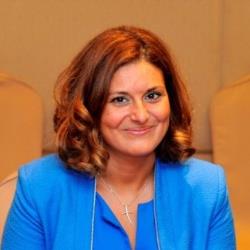
As a highly skilled professional with over 20 years of emerging technology standards and policy development experience, She is currently leading ITU initiatives in the areas of metaverse, IoT, and smart sustainable cities. She is also the ITU/TSB focal point for Latin America and the Focal Point of the United for Smart Sustainable Cities, a UN initiative supported by 19 UN entities. Through my work, She has played a key role in driving the development of smart sustainable cities standards, making a positive impact on communities around the world. Closely coordinating with city and government officials, industry leaders, academics, and civil society representatives, She ensure that the ITU continues to provide an open and collaborative platform which supports our shared goal of achieving the SDGs through inclusive digital transformation.
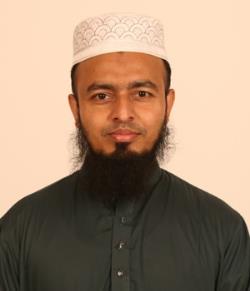
IT professional with 15 years of experience in government IT sectors. Skilled in website development, web applications, networking, ICT, IoT, smart city, security and system administration. Seeking to contribute to the advancement of IT for making smart and sustainable Bangladesh.
Highlights:
System Analyst at Ministry of Finance
Masters in Information Technology
Life member of Bangladesh Computer Society (BCS)
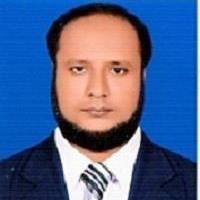
RESEARCH INTERESTS
IoT
Wireless Sensor Network
Vehicular Ad Hoc Network
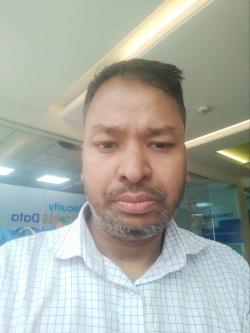
I am Selim Mahmud. I am basically a full stack software engineer with diversified experiences in different IT fields. I have completed my graduation in Computer Science and Engineering from Bangladesh University of Engineering and Technology (BUET), Dhaka, Bangladesh. I have had an extensive professional experience of more than 15 years with several national and multinational companies in different IT areas such as Telecommunication, Software Development, IT Project Management, IT Security and Risks, and R&D. Now I have been working as Manager in the department of Software Security & Risk in BRAC Bank PLC.
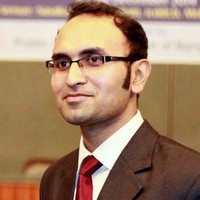
Dr. Md. Mofijul Islam Bulbul, MBBS, MPH. have interest in health science, leadership, social work and diplomacy. I dreamt to serve and treat the people. I am also involved in developing innovative tools for Health System Strengthening. We are developing several software on Monitoring and Evaluation of HSS activities. Recently I have started to work with Commission on Information and Accountability (COIA) for Women and Children’s Health. I am also involved as a delegate from Bangladesh with different international alliance group those who are working in Global Health, Maternal and Child Health, Health Research and Health Policy areas.
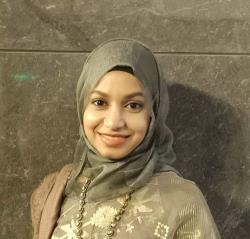
Dr. Tohfa-E-Ayub is a passionate educator and researcher with a strong interest in Biochemistry. She brings over 12 years of experience to her role as an Assistant Professor at Ibrahim Medical College, Dhaka. Dr. Ayub is dedicated to fostering a stimulating learning environment for her students and is actively involved in research within the field of Biochemistry.
Areas of Expertise:
Biochemistry
Medical Education
Academic Interests:
Dr. Ayub's research interests lie within the vast field of Biochemistry.
-
 C1. The role of governments and all stakeholders in the promotion of ICTs for development
C1. The role of governments and all stakeholders in the promotion of ICTs for development
-
 C2. Information and communication infrastructure
C2. Information and communication infrastructure
-
 C3. Access to information and knowledge
C3. Access to information and knowledge
-
 C4. Capacity building
C4. Capacity building
-
 C5. Building confidence and security in use of ICTs
C5. Building confidence and security in use of ICTs
-
 C6. Enabling environment
C6. Enabling environment
-
 C7. ICT applications: benefits in all aspects of life — E-government
C7. ICT applications: benefits in all aspects of life — E-government
-
 C7. ICT applications: benefits in all aspects of life — E-business
C7. ICT applications: benefits in all aspects of life — E-business
-
 C7. ICT applications: benefits in all aspects of life — E-learning
C7. ICT applications: benefits in all aspects of life — E-learning
-
 C7. ICT applications: benefits in all aspects of life — E-health
C7. ICT applications: benefits in all aspects of life — E-health
-
 C7. ICT applications: benefits in all aspects of life — E-employment
C7. ICT applications: benefits in all aspects of life — E-employment
-
 C7. ICT applications: benefits in all aspects of life — E-environment
C7. ICT applications: benefits in all aspects of life — E-environment
-
 C7. ICT applications: benefits in all aspects of life — E-agriculture
C7. ICT applications: benefits in all aspects of life — E-agriculture
-
 C7. ICT applications: benefits in all aspects of life — E-science
C7. ICT applications: benefits in all aspects of life — E-science
-
 C8. Cultural diversity and identity, linguistic diversity and local content
C8. Cultural diversity and identity, linguistic diversity and local content
-
 C9. Media
C9. Media
-
 C10. Ethical dimensions of the Information Society
C10. Ethical dimensions of the Information Society
-
 C11. International and regional cooperation
C11. International and regional cooperation
-
 Goal 1: End poverty in all its forms everywhere
Goal 1: End poverty in all its forms everywhere
-
 Goal 2: End hunger, achieve food security and improved nutrition and promote sustainable agriculture
Goal 2: End hunger, achieve food security and improved nutrition and promote sustainable agriculture
-
 Goal 3: Ensure healthy lives and promote well-being for all
Goal 3: Ensure healthy lives and promote well-being for all
-
 Goal 4: Ensure inclusive and equitable quality education and promote lifelong learning opportunities for all
Goal 4: Ensure inclusive and equitable quality education and promote lifelong learning opportunities for all
-
 Goal 6: Ensure access to water and sanitation for all
Goal 6: Ensure access to water and sanitation for all
-
 Goal 7: Ensure access to affordable, reliable, sustainable and modern energy for all
Goal 7: Ensure access to affordable, reliable, sustainable and modern energy for all
-
 Goal 8: Promote inclusive and sustainable economic growth, employment and decent work for all
Goal 8: Promote inclusive and sustainable economic growth, employment and decent work for all
-
 Goal 9: Build resilient infrastructure, promote sustainable industrialization and foster innovation
Goal 9: Build resilient infrastructure, promote sustainable industrialization and foster innovation
-
 Goal 10: Reduce inequality within and among countries
Goal 10: Reduce inequality within and among countries
-
 Goal 11: Make cities inclusive, safe, resilient and sustainable
Goal 11: Make cities inclusive, safe, resilient and sustainable
-
 Goal 12: Ensure sustainable consumption and production patterns
Goal 12: Ensure sustainable consumption and production patterns
-
 Goal 13: Take urgent action to combat climate change and its impacts
Goal 13: Take urgent action to combat climate change and its impacts
-
 Goal 14: Conserve and sustainably use the oceans, seas and marine resources
Goal 14: Conserve and sustainably use the oceans, seas and marine resources
-
 Goal 15: Sustainably manage forests, combat desertification, halt and reverse land degradation, halt biodiversity loss
Goal 15: Sustainably manage forests, combat desertification, halt and reverse land degradation, halt biodiversity loss
-
 Goal 16: Promote just, peaceful and inclusive societies
Goal 16: Promote just, peaceful and inclusive societies
-
 Goal 17: Revitalize the global partnership for sustainable development
Goal 17: Revitalize the global partnership for sustainable development